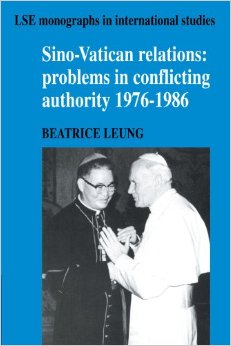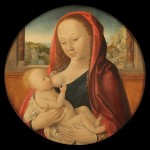Today we feature an exclusive peek ahead to the third installment of my interview on Hong Kong with Dr. Justin Tse of the University of Washington. It will appear on Ethika Politika this Wednesday.
What follows below is a list of the five essential books to read to better understand Vatican relations with China and Hong Kong. The Wednesday interview (totally new content) will deal with questions that dovetail into this book list.
The previous two parts of our interview can be found here and here. Hong Kong protesters have read and retweeted them. They were also featured by UCA News, which bills itself as “Asia’s most trusted independent Catholic news source.”
Justin Tse is an SSHRC Postdoctoral Fellow at the Jackson School of International Studies, University of Washington. He received his PhD in Geography at the University of British Columbia at Vancouver. He drinks at least four cups of coffee a day, somehow stays hydrated, and writes about theology and geography at Religion. Ethnicity. Wired.
What are some books you would recommend on Chinese-Church relations, and why?

Justin Tse: The unequivocal classic is Beatrice Leung’s Sino-Vatican Relations: Problems in Conflicting Authority, 1976-86. It’s Leung’s massive exposition of the geopolitical relationship between China and the Vatican, casting Catholic practice as consistently political. Richard Madsen’s China’s Catholics takes geographical argument one step further, revealing that the Catholic renaissance in China has very real urban-rural fissures, continuing problems in conflicting authorities, and disagreements between those who practice Catholicism openly and those who are still underground. Finally, Paul Philip Mariani’s Church Militant: Bishop Kung and Catholic Resistance in Communist Shanghai is an account that uses declassified sources to get at the tension between the state-sponsored and Vatican-devoted churches that resulted in the long imprisonment of Shanghai bishop Ignatius Cardinal Kung Pinmei.
A book with which I am increasingly coming to disagree is the Hong Kong Anglican primate Paul Kwong’s Identity in Community. Though Anglican in focus, Kwong’s argument hinges on his reading of Cardinal Wu’s ‘March into the Bright Decade’ as a pragmatic text, urging the Church to strategically collaborate with the new regime in order to provide the greatest amount of services while initiating change from within the government. Because of this, Kwong seems puzzled that Wu’s successor, Cardinal Zen, would be so outspoken against the government. However, if Kwong were to see ‘March into the Bright Decade’ as prescribing Zen’s practice of passive compliance unless geopolitical Sino-Vatican relations are strained by issues of justice (such as Article 23, the right of abode, and the diocesan control of schools), he might see that the document is less pragmatic as it is strategic. Nevertheless, because Kwong’s outspokenness against the Occupy Central movement has been a matter of public record since 2013, his book is worth reading as a bit of an explanation, especially for contrasting how an Anglican might read Wu’s pastoral letter over against Zen’s on-the-ground praxis.
Finally, Beatrice Leung and Shun-hing Chan’s Changing Church-State Relations in Hong Kong is an indispensable introductory text to the contrast of Catholics and Protestants approaching the question of 1997 in Hong Kong.











